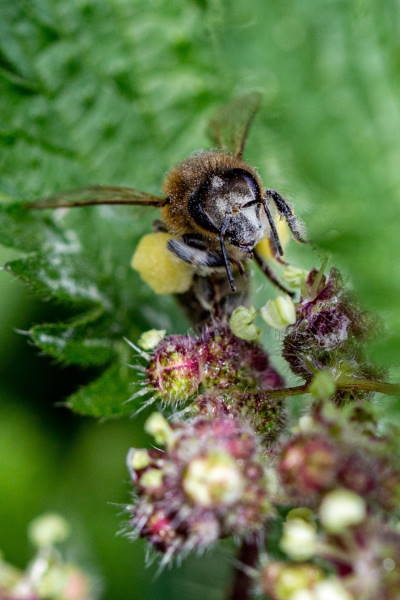Researchers from the B.S.R.C. ‘Alexander Fleming’ in Greece have optimised a method to characterise DNA traces in honey, revealing the species that honeybees interact with.
This collaborative work led by researcher Dr. Solenn Patalano allowed the monitoring of the variability of bee diets across the year, revealing bee microbiota in a non-invasive way, as well as identifying pathogenic species they are confronted by. The research study is published in the journal Molecular Ecology Resources and, while at an early exploratory stage, it may revolutionise the way we understand honeybee ecological niches.

Caption: “Honeybee on stinging nettle plant”
Credit: Yannis Varouhakis
Press release available here:
https://www.eurekalert.org/news-releases/953403
Publication reference:
Galanis, A., Vardakas, P., Reczko, M., Harokopos, V., Hatzis, P., Skoulakis, E. M. C., Pavlopoulos, G. A., & Patalano, S. (2022). Bee foraging preferences, microbiota and pathogens revealed by direct shotgun metagenomics of honey. Molecular Ecology Resources, 00, 1– 1 8 . https://doi.org/10.1111/1755-0998.13626